International campaign to launch popular convoy to break Syria blockade
A pan-Arab international campaign has announced plans for launching a popular convoy to confront the long-running blockade imposed by the United States and the European Union on Syria, which is currently suffering the aftermath of a devastating earthquake that has so far claimed thousands of lives and left as many destitute across the Arab country.
The Arab and International Campaign to Break Siege on Syria made the announcement on Friday after a meeting headed by its general coordinator Magdi al-Masrawi, former secretary-general of the Arab National Congress, official SANA news agency reported.
“The conferees studied a proposal to launch an Arab popular convoy from the west of the Arab world to its east under the title “The Arab Unity Convoy to Break the Embargo Imposed on Syria” similar to the “Convoy of Arab Unity, Maryam” to break the siege on Iraq, which started at the beginning of the current century from London towards Morocco, then towards Iraq,” the campaign said.
According to the statement, it was agreed that members of the committee, along with members of the General Arab Conference, personalities and parties in solidarity with Syria, would conduct contacts in order to make the initiative a success.
The disastrous earthquake hit Turkey and neighboring Syria earlier this month, killing more than 50,000 in both countries, according to the latest figures which are updated daily.
As rescue efforts continue in Syria following massive earthquakes there, calls are growing for the US and its European allies to remove their sanctions, which are said to be hampering international aid efforts in the country.
Syria has been a target of US sanctions since 1979. Since the start of the Syrian conflict in 2011, the US and its Western allies have dramatically tightened their economic sanctions and restrictions on the Arab country.
The US sanctions intensified with the passing of the Caesar Act in 2019, which targeted any individual and business that participated either directly or indirectly in Syria's reconstruction efforts.
The restrictive measures have blocked imports of essential goods, affecting the Syrian people’s access to medical equipment, food, heating, gas, and electricity. The sanctions have effectively cut Syria off from the global economy, leaving it dependent on a handful of allied states like Russia and Iran.
The UN says over five million people in Syria have been affected by the earthquake and need shelter, food, and medicine. The disaster has multiplied the suffering of Syrians who have endured years of foreign-backed war and western sanctions that left millions dead, displaced, and impoverished.
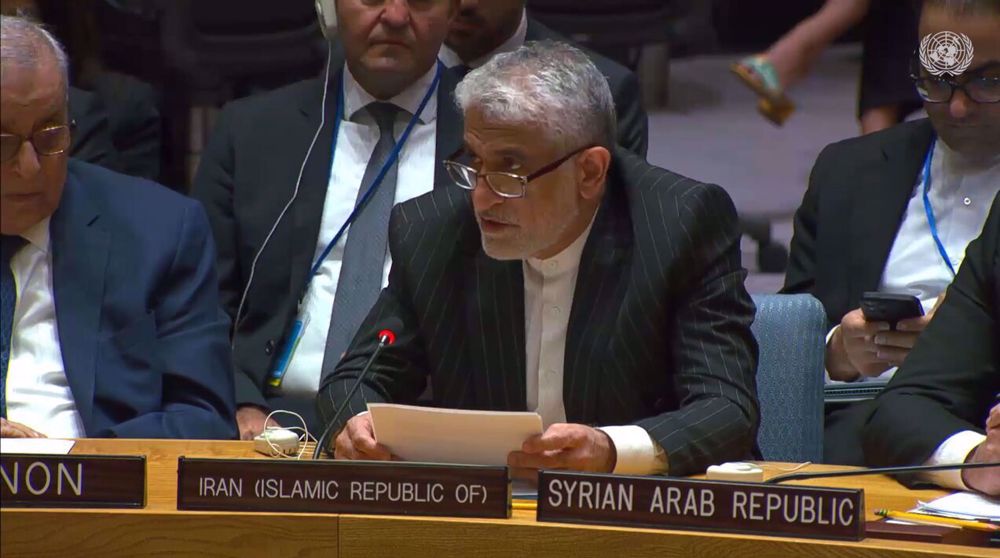
Iran backs sovereign, stable Syria free of terrorism, UN envoy says
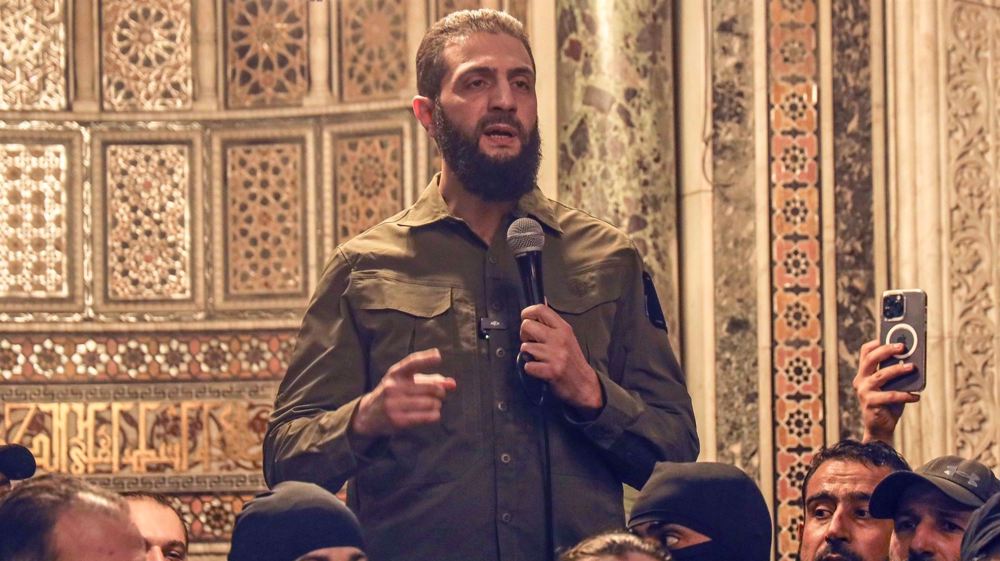
Syria’s HTS seeks normalization with Israel, Jolani writes to Trump
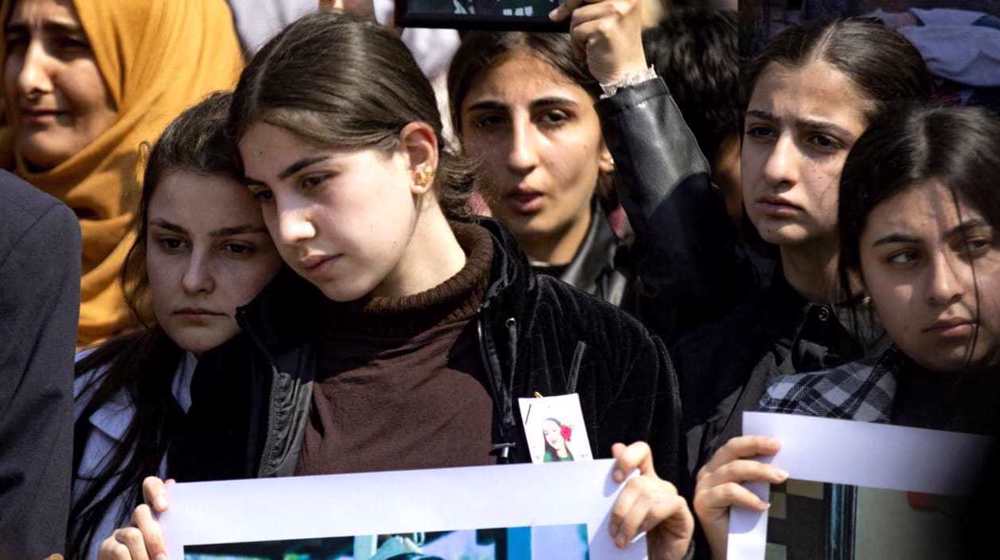
Syrian militants enslaving Alawite women in Idlib governorate: Report
Iran supports any measure to strengthen peace, tranquility: Pezeshkian
Iran, Russia agree to transfer gas via Azerbaijan: Minister
VIDEO | US joins global protest day to demand Israel lift 8-week siege
HTS gunmen, allied militants kill over dozen Alawites in Syria’s Homs
VIDEO | Press TV's news headlines
VIDEO | Muscat’s 3rd round of indirect talks between Iran, US
Iran’s foreign minister says ‘satisfied’ with progress in talks with US
MSF: 70% of burn victims in Gaza are children, little chance of recovery


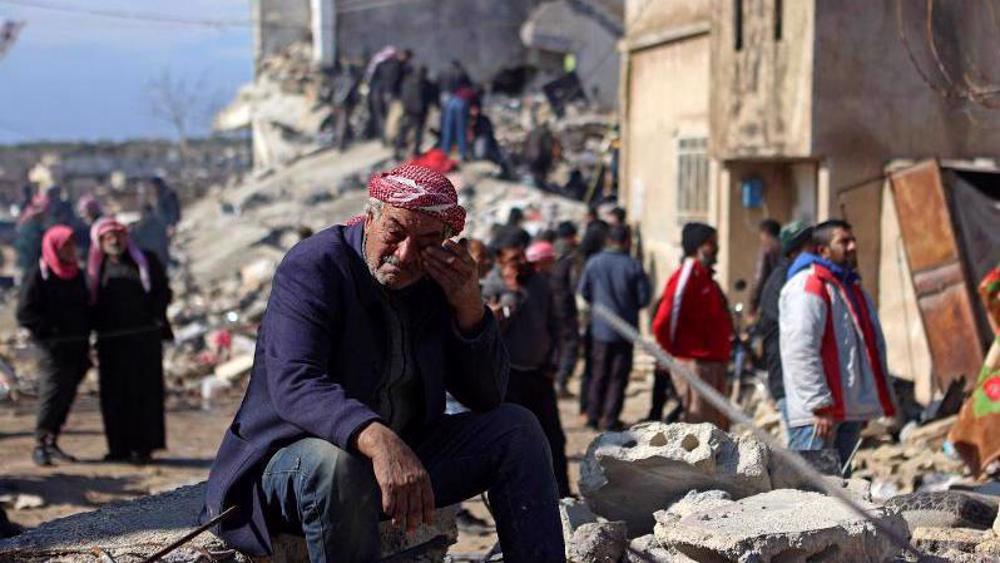
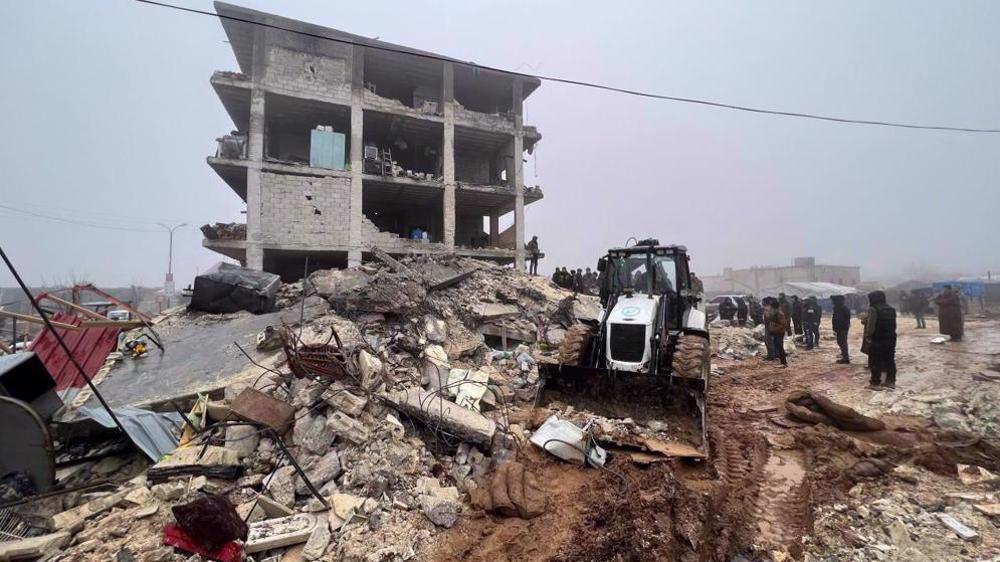




 This makes it easy to access the Press TV website
This makes it easy to access the Press TV website